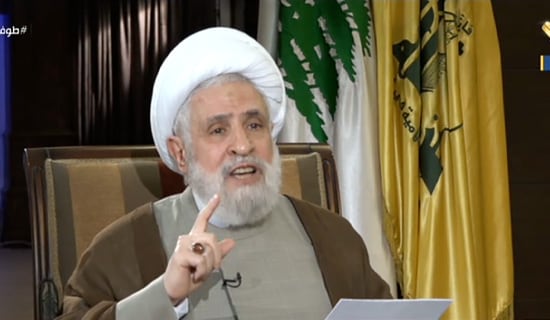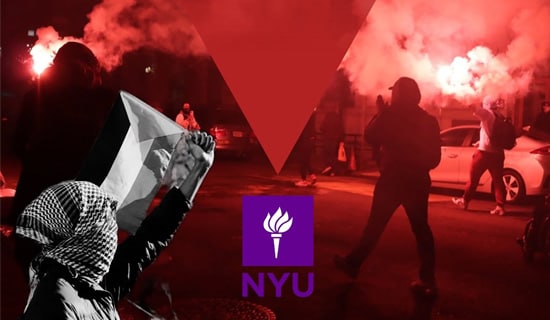On July 1, suicide bombers attacked the shrine of popular Sufi mystic Syed Ali Hajveri in Lahore, killing over 40 people and wounding more than 175. The 11th-century mystic is popular across South Asia, and his shrine in known as Data Darbar. The shrine attack has highlighted the continuing concerns about various militant organizations based in Punjab, of which Lahore is the capital.
The Punjab government led by Chief Minister Shahbaz Sharif has come under popular pressure to act against these militant organizations, which were banned by then-military ruler General Pervez Musharraf in 2002 but have been operating under new names. The Sharif government, which has enjoyed the support of militant leaders such as Mohammad Ahmed Ludhianvi of the outlawed group Sipah-e-Sahaba Pakistan, has consistently rejected the federal government's calls for action against the militants.
However, on July 5, Pakistani Prime Minister Yousaf Raza Gilani held a high-level meeting to formulate a strategy against the terror groups in Punjab. Shahbaz Sharif attended the meeting, in a sign that the provincial and federal governments are working together against the Punjabi militants. Any action against these groups will be seen as going against the traditional policy of support to Islamist groups by the Pakistan Muslim League (PML-N) party, led by Shahbaz Sharif and his brother Nawaz Sharif.
For now, the Punjab government has acted swiftly, announcing a ban on 23 militant organizations, many of whom are working in collaboration with the Taliban and Al-Qaeda. Although these groups were banned in 2002, they have been recently functioning under different names. The organizations banned by the Punjab government include: Sipah-e-Sahaba Pakistan (SSP), Jaish-e-Muhammad, Lashkar-e-Taiba, Tehreek-e-Jafria, Harkatul Jihad al-Islami, Harkatul Mujahideen, Hizbut Tahrir, Lashkar-e-Jhangvi, and Sipah-e-Muhammad.[1] It should be noted that in recent years, Lashkar-e-Taiba changed its name to Jamaatud Dawa; Sipah-e-Sahaba Pakistan began operating under the names of Millat-e-Islami and Ahle Sunnat Wal Jamaat; Jaish-e-Muhammad as Al-Furqan and Khuddamul Islam; Tehreek-e-Jafria as Islami Tehreek-e-Pakistan, and so on.
In the following three editorials, Pakistani newspapers examine the role of Punjabi militants, popularly clubbed as Punjabi Taliban, and ponder over whether the Punjab government's banning of these organizations will be effective. In an editorial, tiled "Anti-Terror Strategy for Punjab," the Lahore-based Daily Times newspaper notes that the Taliban militants, who have been under pressure due to the recent military operations in the tribal areas and Khyber Pakhtunkhwa, may be seeking to open a new battle front in Punjab to ease off pressure on them in the tribal region.
In an editorial, titled "Punjab Bans," the leading newspaper The News notes that the Punjab government's move to ban the militant groups does not foresee any action against Jamaatud Dawa, the new name for militant group Lashkar-e-Taiba, and its Emir Hafiz Muhammad Saeed. Lashkar-e-Taiba and Jamaatud Dawa were blacklisted by the UN Security Council after the 2008 Mumbai terror attacks. The liberal newspaper Dawn also wrote an editorial titled "What's In a Name?" expressing concern that the Punjab government's ban on the militant groups may not work if the government does not take sincere steps against these groups.
The following are excerpts from these articles: [2]
Editorial in Daily Times: "If the Militants' Strategy is to Compel the Government to Open a New Military Front in Punjab to Take Pressure Off Them in Khyber Pakhtunkhwa, They May Not Succeed"
Following are excerpts from the Daily Times editorial:[3]
"[The July 5] high-level meeting presided over by Prime Minister Yousaf Raza Gilani has clearly configured how Punjab and the [federal government]... would cooperate in combating terrorism. Chief Minister Shahbaz Sharif's presence and support of the meeting's decisions indicates that Punjab is on board after the federal government responded positively to [Shahbaz Sharif's brother and former prime minister] Nawaz Sharif's proposal for an all parties' conference on the issue. An important outcome of the meeting was a clarification by Interior Minister Rehman Malik that no military operation would be conducted in southern Punjab, which in any case is a non-starter given the very different problem there.
"Instead, police and intelligence-based action will be taken primarily by the Punjab government itself, with necessary assistance from the [federal government]. Great pressure has been brought to bear on the Punjab government in the aftermath of the terrorist attack on Data Darbar in Lahore. Whether the PML-N likes it or not, the Punjab government will have to take concrete action against banned terrorist outfits operating under new names throughout Punjab and providing crucial support to terrorist organizations in Khyber Pakhtunkhwa. The attack on the Sufi shrine has elicited a strong reaction from citizens across the country as well as across the political spectrum, condemning the Punjab government for its pussyfooting attitude toward certain terrorist and sectarian outfits.
SUPPORT OUR WORK

"The meeting supported the call for a national conference of all political parties. Earlier, political consensus on operations against militants in Swat and parts of FATA [federally administered tribal areas] was instrumental in their success. So far, opinion has been sharply divided on the need for action against militants in Punjab. Voices have been raised from time to time that Khyber Pakhtunkhwa-like operations should be launched in southern Punjab, following a steep rise in deadly attacks. Besides deliberating on the nature of the threat, the all parties' conference will hopefully help forge consensus on the action needed in Punjab.
"Having suffered heavy losses in Khyber Pakhtunkhwa and FATA, the militants seem to have activated their sleeper cells in Punjab to deflect the attention of the security forces. The recent spate of attacks on diverse targets in Punjab has reached alarming proportions. If the militants' strategy is to compel the government to open a new military front in Punjab to take pressure off them in Khyber Pakhtunkhwa, they may not succeed. The situation in Punjab is essentially different from Swat [a district in Khyber Pakhtunkhwa] and FATA, where the militants had occupied territory, formed parallel governance systems, and eliminated the writ of the state. It was necessary to reclaim the territory and establish state authority.
"The same cannot be argued for southern Punjab, where militant sectarian outfits are operating from within the populace in settled and urban areas. Hence, the interior minister's statement makes eminent sense. If the terrorists in FATA and Swat were hoping for an engagement with the military in Punjab, they are likely to be disappointed. In all terrorist attacks in Punjab, such as on the Manawan police training academy or on the Ahmadis' worship places [in Lahore], the police have been at the forefront in combat with the militants. The police should be further strengthened through training in counter-terrorism methods, adequate weapons and equipment, and backed by meticulous intelligence work to bust the militant networks.
"If the PML-N wants to survive politically, it will have to take these tough decisions. The meeting's decision to curtail the activities of banned organizations under the camouflage of new names has put the Punjab government in an unenviable position, which requires distancing itself from its long-time friends and allies [i.e. leaders of these militant groups]. The Punjab government would be well advised to set aside its politically partisan considerations, and act in the national interest for the benefit of all."
Editorial in The News: "Jamaatud Dawa and Other Organizations May not be Behind Direct Acts of Militancy... But These Forces Also Create an Environment in Which Extremism can Take Hold"
Following are excerpts from the editorial in The News:[4]
"The Punjab government, soon after the high level meeting on law and order chaired by the prime minister, has shown that it means business. As it had been warning for some time, it has announced a ban on 23 militant organizations. All of these are groups banned in 2002 under former President General Pervez Musharraf and which had subsequently started operating under altered names. There are significant omissions. The Jamaatud Dawa of Hafiz Muhammad Saeed [the founder of Lashkar-e-Taiba] has been spared, though its funds have been frozen and restrictions placed on Saeed, who will not be able to travel overseas. The friendly attitude toward the group may raise some eyebrows.
"With these measures it appears Punjab has finally accepted that militancy does indeed exist within the province and steps need to be taken to bring it under check. This, on its own, is an important development. But there are many matters that for now remain uncertain. In the past it has proved impossible to effectively enforce the bans on organizations suspected of spreading extremism. What guarantee is there that the revived bans will work? For the moment we have no assurance of this at all and no clarity as to what will be done to prevent groups changing names once more.
"A great deal will depend on the consistent resolve and commitment of the Punjab setup. The chief minister was able to convince others attending the security meeting in Islamabad that no operation in southern Punjab was needed for now. He will need to prove this by exhibiting an ability to defeat militancy through other means. The curbs placed on individuals playing a key role within these groups and the checks on bank accounts are, in this respect, significant.
"However, it is essential to recognize that extremism in our country is no longer carried forward by specific groups that can be easily identified and nailed down. The Jamaatud Dawa and other organizations may not be behind direct acts of militancy. It is also a fact that they are engaged in many good works that bring solace to many everywhere. Hindu women in Sindh have recently demonstrated in their favor. But these forces also create an environment in which extremism can take hold. The approach to tackling militancy thus needs to be a complex one, taking in many factors. Eventually, issues such as unemployment need also to be addressed. This is a matter for the Punjab chief minister to take up with the federal government and persuade it that militancy can disappear only when the vast grievances of people are redressed."
Editorial in Dawn Newspaper: "We Believe the Punjab Government's Recent Move to Ban 23 Militant Organizations will Not Deliver... Unless It is Accompanied by Concrete Action on the Ground"
Following are excerpts from the Dawn editorial:[5]
"We are running round in circles. Simply outlawing a militant outfit has never worked, and all such moves will fail until a watertight case is presented explaining the reasons behind the ban. This must be preceded and followed by thorough investigation that can stand up in court and lead to convictions. But that hasn't happened so far due to a combination of official incompetence and a desire to avoid controversy or a possible backlash. Sectarian and other militant organizations operating within the country and elsewhere were banned in 2001 and more were included in the outlawed list in 2002.
"The result: nothing whatsoever. Each time such outfits are proscribed they re-emerge under new names and are therefore deemed legal. Consider here that the intrinsic nature of the 'new' organizations remains unchanged, their leaders are the same in most cases and the party cadre continue to operate freely. That is why we believe the Punjab government's recent move to ban 23 militant organizations will not deliver either unless it is accompanied by concrete action on the ground. Even tougher anti-terrorism laws may yield nothing if policing remains so poor.
"Take the case of Mohammad Ahmed Ludhianvi, co-founder of the banned Sunni sectarian organization Sipah-e-Sahaba Pakistan [SSP] which first changed its name to Millat-i-Islamia and now operates under the banner of Ahle Sunnat Wal-Jamaat [ASWJ]. On Monday, surrounded by armed guards, he emerged from a vehicle without a registration plate and gave an interview to a private television channel. In the recent past he has also met with at least one governor and two provincial chief ministers. Somehow — and this beggars belief — the leader of a much-feared militant outfit has been transformed into a seemingly respectable religious figure who can appear on television and confer with top officials. A change of name, ASWJ instead of SSP, was all it took.
"The fault for this absurd and dangerous situation lies entirely with successive governments including the current administration. Instead of dismantling networks they have taken the easy route by banning them in name without checking their activities. It should be realized that focusing on leaders alone or the theoretical nature of their outfits is an exercise in futility. Militant organizations cannot function without their activists and it is in this area that the crackdown must be the hardest. If the government cannot do this it should say so and stop paying lip service to issues as grave as militancy and terrorism. A person is either a terrorist or he is not. If he is, make a solid case and have him convicted in court. And if that can't be done, admit defeat."




